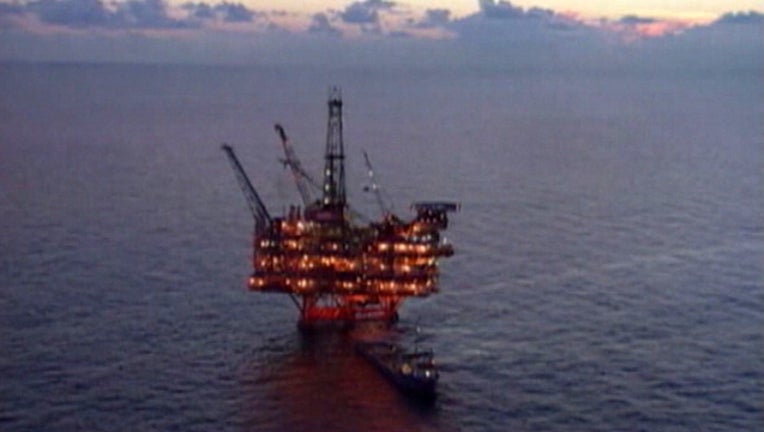Florida leaders blast oil-drilling changes

FOX / file
TALLAHASSEE (NSF) - Members of Florida’s congressional delegation from both sides of the political aisle denounced a White House proposal Friday that they say would weaken offshore oil-drilling regulations.
The Interior Department labeled the proposed changes to what is known as the 2016 Well Control Rule as “our common-sense approach,” which “could reduce unnecessary regulatory burdens while ensuring that any such activity is safe and environmentally responsible.”
The American Petroleum Institute said the revisions to a “technically flawed” rule will make offshore operations safer.
But Florida lawmakers pointed to economic damage that the deadly 2010 Deepwater Horizon explosion and oil spill inflicted on the state’s tourism industry and environment, particularly in the Panhandle. Those lawmakers questioned if the risk is worth reducing safety regulations.
U.S. Rep. Vern Buchanan, a Longboat Key Republican and co-chairman of the state’s congressional delegation, criticized the proposal by the Interior Department’s Bureau of Safety and Environmental Enforcement as “reckless and unacceptable.” The proposal would alter 44 provisions and delete another 15 involving well-control regulations.
“Have we learned nothing from the worst environmental disaster in American history?” Buchanan said in a prepared statement. “These safeguards should remain in place.”
Buchanan noted that among the proposed changes, independent inspectors who test blowout preventers would no longer need to be certified by the government and real-time monitoring of offshore oil rigs would be loosened. The regulations were enacted under former President Barack Obama.
U.S. Sen. Bill Nelson, D-Fla., criticized the proposal as the Trump administration turning “a blind eye to history, just to help their friends in the oil industry.”
“These rules were put in place to prevent another massive oil spill off our coasts,” Nelson said in a statement. “We can't allow this new administration to take us backwards in time and, once again, expose Florida’s beautiful beaches and tourism-based economy to such an unnecessary risk.”
The comments from lawmakers were spurred by the Interior Department submitting the proposed revisions to the Federal Register. The changes will be published next week. The move kicks off a 60-day public comment period.
“We are incorporating industry innovation, best science, and best practices to improve reliability, safety, and environmental stewardship,” the Interior Department said.
The changes, directed at oil and gas drilling operations on the outer continental shelf, would revise requirements for equipment and operations for well-control activities. The agency said the changes are proposed to affect less than 18 percent of the 342 provisions implemented in 2016.
Erik Milito, director of upstream and industry operations for the American Petroleum Institute, said in a news release that the revisions “will move us forward on safety, help the government better regulate risks and better protect workers and the environment.”
“As with all regulations, it is important that offshore safety regulations --- including BSEE’s Well Control Rule --- constantly evolve and are revised based upon new insights and developments in the offshore exploration and development field,” Milito said. “Instead of locking in regulatory provisions that may actually increase risk in operations, it is critical that revisions are made that enhance the regulatory framework to ensure updated, modern, and safe technologies, best practices, and operations.”
Florida lawmakers have repeatedly criticized offshore drilling plans that have emerged in recent months from the White House.
In January, lawmakers took aim at both the initial draft of the Well Control Rule revisions and a separate plan to open to drilling previously protected parts of the nation’s outer continental shelf --- a jurisdictional term describing submerged lands 10.36 statutory miles off Florida's West Coast and three nautical miles off the East Coast.
Interior Secretary Ryan Zinke appeared briefly Jan. 9 in Tallahassee to announce drilling would not occur off Florida’s coasts. But the administration’s stance has not been formalized and continues to draw questions.
On Jan. 29, Florida Department of Environmental Protection Deputy Director Rebecca Prado outlined the state’s opposition to the rule changes in a letter to the Interior Department.
Prado pointed to the “potential harm that reduced oversight might have on Florida’s environment.”
“As we have seen in the past, oil spills can have a devastating impact to Florida’s economy and our diverse natural resources,” Prado wrote.
Gov. Rick Scott’s office pointed to the letter on Friday.
“As the Florida Department of Environmental Protection clearly stated in January, we are firmly against these proposed changes,” Scott said in a statement Friday. “While I appreciate Secretary Zinke taking Florida off the table for offshore oil drilling, I remain concerned about the potential impact these changes could have on Florida’s environment.”
In November, Florida voters will decide whether to approve a proposed constitutional amendment that would ban nearshore oil and gas drilling. That ban would affect state-controlled waters.

